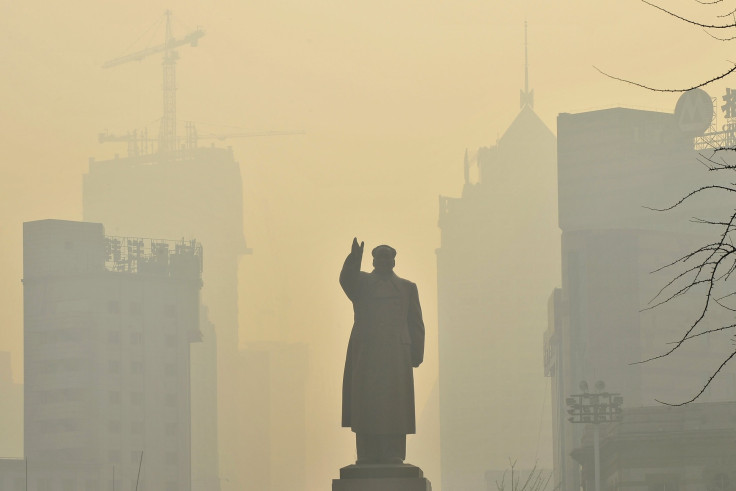Air Pollution In China Estimated To Cut Life Expectancy By More Than Five Years For Northern Residents

China’s pollution issues stemming from the nation’s breakneck development have been well-documented in the media. Now, a new study claims the country’s rampant pollution has enormous impact on the health --and mortality -- of people living in China, particularly those in the north.
Research by the Proceedings of the National Academy of Sciences said that life expectancy is 5.5 years lower for those in northern China than those living in the south because of heavy air pollution. The research, which utilizes more than 20 years of data and was headed by four economists -- two in China, one in the U.S. and another in Israel -- used air-quality readings from 90 different Chinese cities between 1981 and 2000, cross-referenced with the mortality data of 145 locations all across the country from 1991 to 2000. The study specifically divided causes of death into two categories, either non-cardiorespiratory or cardiorespiratory, the latter consisting of respiratory illnesses and lung cancer (both are strongly correlated with air quality).
The significant difference between the northern and southern cities (delineated physically by the Huai River) is a result of Mao-era economic policies that subsidized free coal-burning heating systems in cities located above the river. Those located below the river were essentially denied the luxury. This inadvertently created a control group of people who were exposed to “normal” air pollution levels, and those exposed to more, allowing researchers to determine effects of coal-burning on human health. It turns out, that this laid the groundwork of toxic pollution in northern China.
Based on the data, researchers have estimated that the 500 million residents living north of the Huai River in the 1990s have collectively lost 2.5 billion years from their lives.
“It’s a huge loss. Air pollution in China is really damaging people’s health much more seriously than the findings in previous literature [would suggest],” Yuyu Chen, of Peking University, told the Los Angeles Times. “After this study, there should be no argument over whether we should take the air pollution issue seriously. … We need a comprehensive clean air act in China.”
News and media reports have gone back and forth trying to determine the actual effects of air quality on the Chinese population. The people behind the study hope that this new information will help provide a more definitive correlation between the two.
“We will never, thank goodness, have a randomized, controlled trial, where we expose some people to more pollution and other people to less pollution over the course of their lifetimes,” Michael Greenstone, one of the study’s authors with MIT, said in the LA Times.
In the past, studies have disputed other air pollution claims in China. For example, a common myth heard by Beijing residents is that living in the northern city is equivalent to smoking a pack of cigarettes a day because of the high pollution levels there. Dr. Richard Saint Cyr, a family medicine physician at Beijing United Family Hospital and Clinics, debunked the urban pollution myth, contending it's more like smoking one-sixth of a cigarette every day.
© Copyright IBTimes 2024. All rights reserved.












